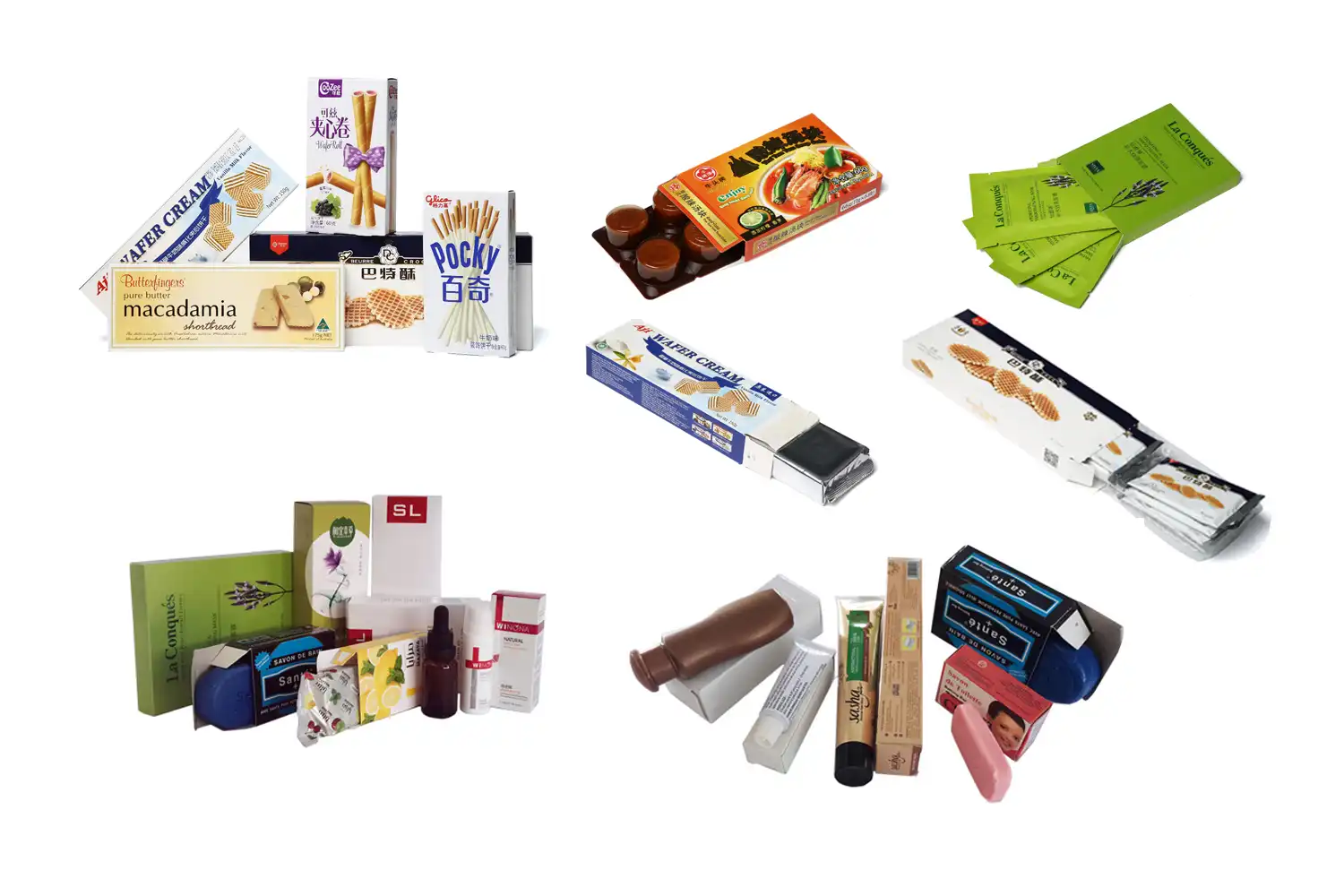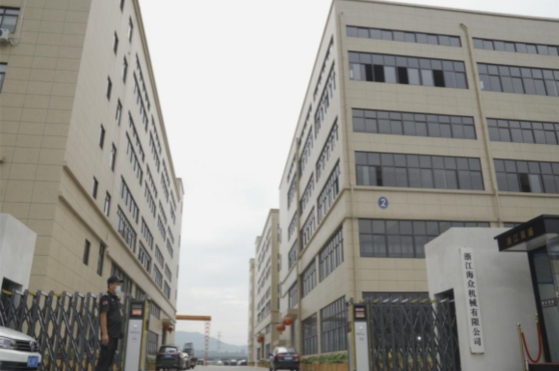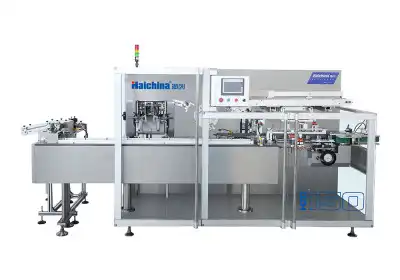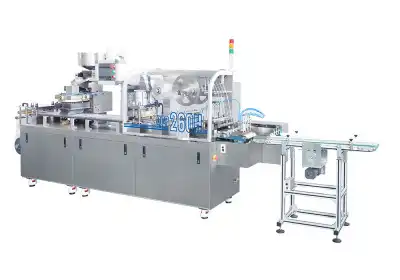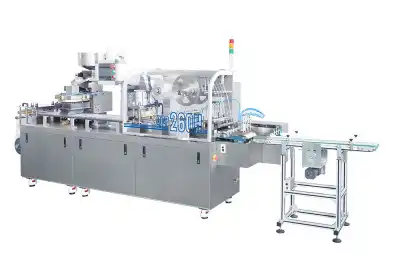Understanding Cartoners: Functions and Applications
The Mechanics of Cartoning Machines
Cartoning machines are sophisticated pieces of equipment designed to automate the process of packaging individual products into cartons. These machines typically operate in a series of steps, including carton erection, product insertion, and carton sealing. The process begins with flat carton blanks being fed into the machine, where they are folded and glued to form the carton shape. Next, the product is inserted into the carton through various methods such as pick-and-place mechanisms or conveyor systems. Finally, the filled carton is sealed, often using hot melt adhesive or tuck-in flaps.
Types of Cartoners
There are several types of cartoners available in the market, each suited for different applications:
- Horizontal Cartoners: Ideal for products that can be loaded horizontally, such as tubes or bottles.
- Vertical Cartoners: Suitable for products that need to be dropped into cartons from above, like powders or granules.
- Top-Load Cartoners: Designed for products that require gentle handling or specific orientation.
- Continuous Motion Cartoners: High-speed machines for large-scale production.
- Intermittent Motion Cartoners: Offer more flexibility for complex carton designs or delicate products.
Industries Benefiting from Cartoning Solutions
Cartoners find applications across various industries, including:
- Pharmaceuticals: For packaging tablets, vials, and medical devices.
- Food and Beverage: Used for snacks, cereals, and frozen foods.
- Personal Care: Packaging cosmetics, toiletries, and hygiene products.
- Electronics: For small electronic components and accessories.
- Household Products: Packaging cleaning supplies and small household items.
Case Packers: Revolutionizing Secondary Packaging
The Functionality of Case Packing Systems
Case packers are designed to automate the process of loading multiple products into larger cases or boxes. These machines can handle a variety of product types and sizes, making them versatile for different packaging needs. The case packing process typically involves case erection, product collation, case loading, and case sealing. Advanced case packers may also incorporate features like product orientation, multi-pack bundling, and integrated quality control systems.
Varieties of Case Packers
Case packers and cartoners come in several configurations to meet diverse packaging requirements:
- Top-Load Case Packers: Ideal for fragile products or those requiring specific orientation.
- Side-Load Case Packers: Suitable for high-speed operations and uniform products.
- Wrap-Around Case Packers: Offer flexibility in case sizes and reduced material usage.
- Robotic Case Packers: Provide high precision and adaptability for complex packing patterns.
- Horizontal and Vertical Case Packers: Designed for different product flow orientations.
Industries Leveraging Case Packing Technology
Case packers are integral to numerous industries, including:
- Food and Beverage: For packaging bottles, cans, and packaged foods.
- Consumer Goods: Used for bundling household products and personal care items.
- Industrial Products: Packaging hardware, automotive parts, and chemical products.
- E-commerce: Streamlining order fulfillment and shipping processes.
- Pharmaceuticals: For secondary packaging of medical supplies and drug products.
Comparative Analysis: Cartoners vs Case Packers
Operational Efficiency and Speed
When comparing cartoners and case packers, it's crucial to consider their operational efficiency and speed. Cartoners typically handle individual product packaging at high speeds, often processing hundreds of items per minute. They excel in precision and are ideal for products requiring careful handling. Case packers, while generally slower in terms of individual product handling, offer efficiency in bulk packaging. They can group and pack multiple products simultaneously, making them more suitable for high-volume secondary packaging needs.
Flexibility and Customization
Flexibility is a key factor in packaging machinery. Cartoners often offer more versatility in terms of carton sizes and styles, allowing for quick changeovers to accommodate different product lines. This makes them particularly valuable in industries with diverse product ranges. Case packers, while less flexible in individual product packaging, offer significant customization in terms of case sizes, packing patterns, and multi-product combinations. Advanced case packers with robotic systems provide even greater flexibility, adapting to various product shapes and sizes.
Cost Considerations and ROI
The investment in packaging machinery is significant, and the choice between cartoners and case packers should be based on long-term cost-effectiveness and return on investment (ROI). Cartoners may have a lower initial cost for businesses focusing on individual product packaging. However, for companies dealing with high-volume production and secondary packaging needs, case packers can offer substantial savings in labor costs and packaging materials over time. The ROI for both types of machines depends on factors such as production volume, product variety, and operational efficiency gains.
Conclusion
In the realm of packaging automation, both cartoners and case packers play vital roles, each serving distinct purposes in the packaging process. Cartoners excel in individual product packaging, offering precision and versatility for a wide range of industries. Case packers, on the other hand, are indispensable for efficient secondary packaging and bulk product handling. The choice between these two technologies depends on specific business needs, product characteristics, and operational goals. As packaging demands continue to evolve, manufacturers like Zhejiang Haizhong Machinery Co., Ltd. are at the forefront, providing innovative solutions that cater to diverse packaging requirements across global markets.
FAQs
Can a cartoner be used for secondary packaging?
While cartoners are primarily designed for individual product packaging, some advanced models can be adapted for small-scale secondary packaging tasks. However, for large-scale secondary packaging, case packers are generally more efficient and cost-effective.
Are case packers suitable for fragile products?
Yes, many case packers, especially top-load and robotic models, are designed to handle fragile products gently. These machines often incorporate advanced control systems and specialized grippers to ensure careful product handling.
How do I decide between a cartoner and a case packer for my business?
The decision depends on your specific packaging needs, product types, production volume, and long-term business goals. Consider factors like product size, packaging requirements, production speed, and flexibility needs. Consulting with packaging machinery experts can help in making an informed decision.
Expert Packaging Solutions | Haichina
At Zhejiang Haizhong Machinery Co., Ltd., we specialize in providing cutting-edge packaging solutions tailored to your unique needs. Our state-of-the-art cartoners and case packers are designed for optimal performance, efficiency, and reliability. With over two decades of industry experience, our expert team can guide you in selecting the perfect packaging machinery for your production line. Whether you're in pharmaceuticals, cosmetics, food, or any other industry, our CE and cGMP certified equipment ensures top-quality packaging results. Experience the Haichina difference - contact our factory at [email protected] to discover how our innovative packaging solutions can elevate your manufacturing process.
References
Smith, J. (2022). Advanced Packaging Technologies: A Comprehensive Guide. Packaging Engineering Journal, 45(3), 78-92.
Johnson, A., & Brown, M. (2021). Comparative Analysis of Cartoning and Case Packing Systems. Industrial Automation Review, 18(2), 112-125.
Lee, S. H. (2023). Innovations in Pharmaceutical Packaging: From Cartoners to Case Packers. Pharma Tech Today, 7(1), 45-58.
Garcia, R., & Martinez, L. (2022). Efficiency Metrics in Food Packaging: Cartoners vs Case Packers. Food Processing Technology, 33(4), 201-215.
Wilson, T. (2021). The Evolution of Packaging Machinery: A Historical Perspective. Journal of Industrial Engineering, 29(2), 156-170.
Zhang, Y., & Liu, X. (2023). Sustainable Packaging Solutions: Analyzing the Environmental Impact of Modern Packaging Technologies. Green Manufacturing Quarterly, 12(3), 89-103.
